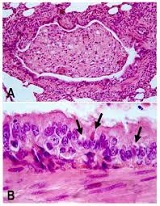
Signs that your cat has been infected with this virus
This is a common medical condition, especially in young cats of one year and below. Though it is not impossible for an older cat to get it, the fully developed immune system of an adult cat will sometimes efficiently protect the cat against the disease. Among the symptoms of distemper in cats are vomiting, diarrhea, fever, anorexia, vomiting and dehydration. Neglected, these symptoms may lead to septic shock and death, and even when correct treatment is applied, kittens under the age of 6 months are likely to die.
Unfortunately, in many cases, panleukopenia does not show any sign and owners do not become aware of the problem until their kittens suddenly die. Where may the cat get the disease from?
Distemper in cats is inflicted by a virus from the parvovirus family and is usually contracted when the secretions of a sick cat come in contact with a healthy one. Also, a cat that had the disease may continue to spread the virus in its droppings up to 6 weeks after its recovery.
Treatment and life expectancy
When distemper is diagnosed, treatment must be started immediately, as this disease is so aggressive that it may kill cats in less than 24 hours. Veterinarians usually recommend fluid therapy and antibiotics. If antibiotics are not administered, the cats will certainly develop septicemia. Also, supporting the immune system with homeopathic remedies is a good idea; vomiting may be controlled with the help of anti-emetic drugs (metoclopramide).
Sadly, despite the treatment, 95% of the kittens that are in the first two months of life are likely to die. This percentage decreases with age and for adult cats the death rate, if treatment is applied immediately, is of 10 %. Distemper in cats can be prevented
The best way to prevent your cat from getting sick is to vaccinate it according to schedule. Due to vaccination, cases of distemper in cats have decreased significantly. A household where a cat was diagnosed with this disease must be considered contaminated and so it will remain until it is attentively disinfected.
Floors, dishes, cat beds and basically all items that were touched by the infected cat must be attentively cleaned with a bleach solution. Despite these measures, the danger of contamination remains high for a long period of time (some say it may be even years until the virus dies), so kittens should be vaccinated prior to their introduction into the environment.
Becoming aware of this danger and vaccinating your pet according to the schedule are the best ways to insure that you will never have to deal with a case of distemper in cats.




